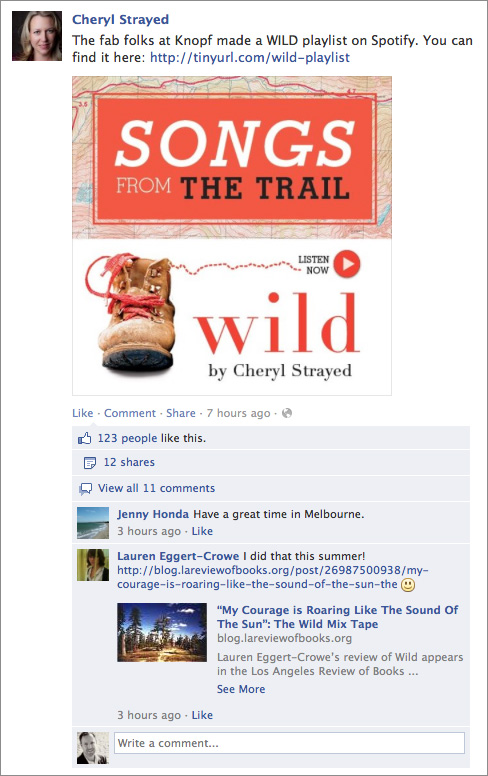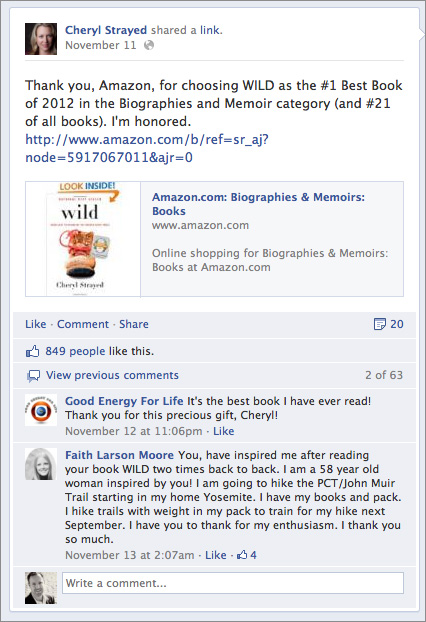
by Pink Sherbet Photography
Do you sometimes get turned off by writers who try to market their books online or at conferences?
For instance:
- An author who shares engaging updates on social media, but where 1 in 10 of those Tweets or status updates includes a reference to a book that they have for sale.
- A blog post (such as this one) that offers useful tips for writers within a community website, but then references a book they wrote on the topic.
What if, right now, I linked to a $5 ebook I wrote on how you can sell more ebooks and suggested you buy it? You just cringed, right? Don?t worry, that link only takes you to a picture of My Little Pony.
What is it about money that makes us question someone?s intentions? What are the ?rules? about if and when you can actually inform people that you have a book you wouldn?t mind they check out?
Tad Hargrave has an interesting way of looking at what marketing is, the following is from a talk he gave in the UK:
?I find that a lot of people are in this situation where they are good at what they do, they have spent a lot of time and money learning to do what they do, but they haven?t necessarily learned how to articulate it or market it. If I had to sum up marketing in a sentence, I would say that marketing is about establishing the value beyond the immediately apparent. This is one of the core challenges in marketing: how do we take what is good on the inside, and make sure that gets seen and understood on the outside.?
He lists four reasons that marketing is valuable:
- Even if money isn?t your primary goal, good marketing will provide a solid financial backbone to your career.
- We don?t need more stuff, there is so much great stuff already out there. The trick is to get people to know about the things that they would genuinely like. We need more people with cool things to be better at marketing them, instead of the people who are selling stuff that literally kills us becoming the great marketers.
- If you are successful, you inspire others. If you are able to sustain yourself financially with your writing, that gives others even more hope that they should continue down the path of honing their craft. I go to a fair number of writing conferences, and the sessions that are always packed are those where an author is speaking on how he or she sold 100,000 books or made $1 million dollars in the process. Now, I KNOW that we are here for the culture, for the craft, for the self-expression; but I don?t see many people attending many conference sessions titled ?I Wrote a Pretty Good Book That 36 People Bought; Learn How I Did It.? I see people packing the room to hear Darcie Chan tell her story; or Bella Andre share advice.
- Marketing helps you be better at what you do. That when you consider who your audience is, you become better at translating the deep value of what you do to the needs or passions of those you hope to reach.
Daniel Pink has a new book coming out called To Sell Is Human, which touches upon this very topic. From the book description:
?Whether we?re employees pitching colleagues on a new idea, entrepreneurs enticing funders to invest, or parents and teachers cajoling children to study, we spend our days trying to move others. Like it or not, we?re all in sales now. He reveals the new ABCs of moving others (it?s no longer ?Always Be Closing?), explains why extraverts don?t make the best salespeople, and shows how giving people an ?off-ramp? for their actions can matter more than actually changing their minds.?
I think that too often, we fight the idea that finance can have a place in a creative community. We see it as something needy and selfish, not something that can create sustainability. To me, a community needs commerce. That it?s not bad to want to sustain one?s passion by having a revenue stream to support it.
The trick for many creatives seems to be to learn how to market WELL. That if you embrace it instead of fight it, you can make it more about communication, and less about trying to control the actions of others. When someone fights the very idea of marketing, they can almost set themselves up to market poorly. For instance, just before a book launch, they scramble at the last moment, and rely on the most obvious ways of spreading the word about their book, which are often the very tactics that many of us are tired of seeing online and offline.
Really good marketers communicate messages in a way that doesn?t sound or feel like marketing. They do this not by tricking you, but by reframing the conversation. They make it about shared beliefs or values; they understand the topics and language that excite their potential audience.
Seth Godin preaches this: the idea of permission marketing. But he is also the one that cleverly used marketing tactics to raise $287,342 in his Kickstarter project.
Sometimes it is easy to make fun of marketing when you yourself have nothing to promote. So many creative people eschew any form of publicity or marketing when they see it in others. But, down the road when their own work finally sees the light of day ? when five years of effort needs to be validated by someone showing up to your free gallery exhibit, buy your $4.99 ebook, or donating $10 to support you racing for a cure, etc ? you suddenly realize how COMMUNICATION is a core need. And that may take the form of marketing.
When you have a book coming out, suddenly you realize the desperately short window you have to hear ANYONE talking about it. So I don?t want to pretend that ?marketing? is about ?me me me me publicity.? People create meaningful work for deeply personal reasons. They want to spread the word because it requires so much serendipity, catching people in just the right mood at just the right moment in a world overwhelmed with messages.
What I find mostly is not that people need to do LESS marketing, but rather they need to simply market better. We don?t need more quantity, but greater effectiveness. That, as Tad said above, when you take marketing seriously, you learn about your audience, you learn what matters to them, and you learn how, when, where and WHY you can effectively communicate to them. That if many authors took marketing more seriously earlier in their book launch process, it wouldn?t come off like marketing at all. Or at least, not as much.
Marketing is inherently it is about two things:
It is about finding the right fit.
And that even those we respect continue to market their work, we have to ask: is it marketing or is it really just sharing? If I look at Cheryl Strayed?s Facebook page, we see plenty of posts about her experiences day to day and things she really likes. But we also see updates about her books. Is this bad?


Just look at people?s reactions in the ?likes? and comments.
What I find in general, is that people have different sensitivities to, and definitions of marketing. In closing, all I can ask is that you please please please buy my ebook.
:)
-Dan
Dan Blank
Source: http://writerunboxed.com/2012/11/23/do-you-cringe-when-authors-market-their-books/
deion sanders creutzfeldt jakob disease the lone ranger yu darvish mad cow pennsylvania primary jerome simpson
কোন মন্তব্য নেই:
একটি মন্তব্য পোস্ট করুন